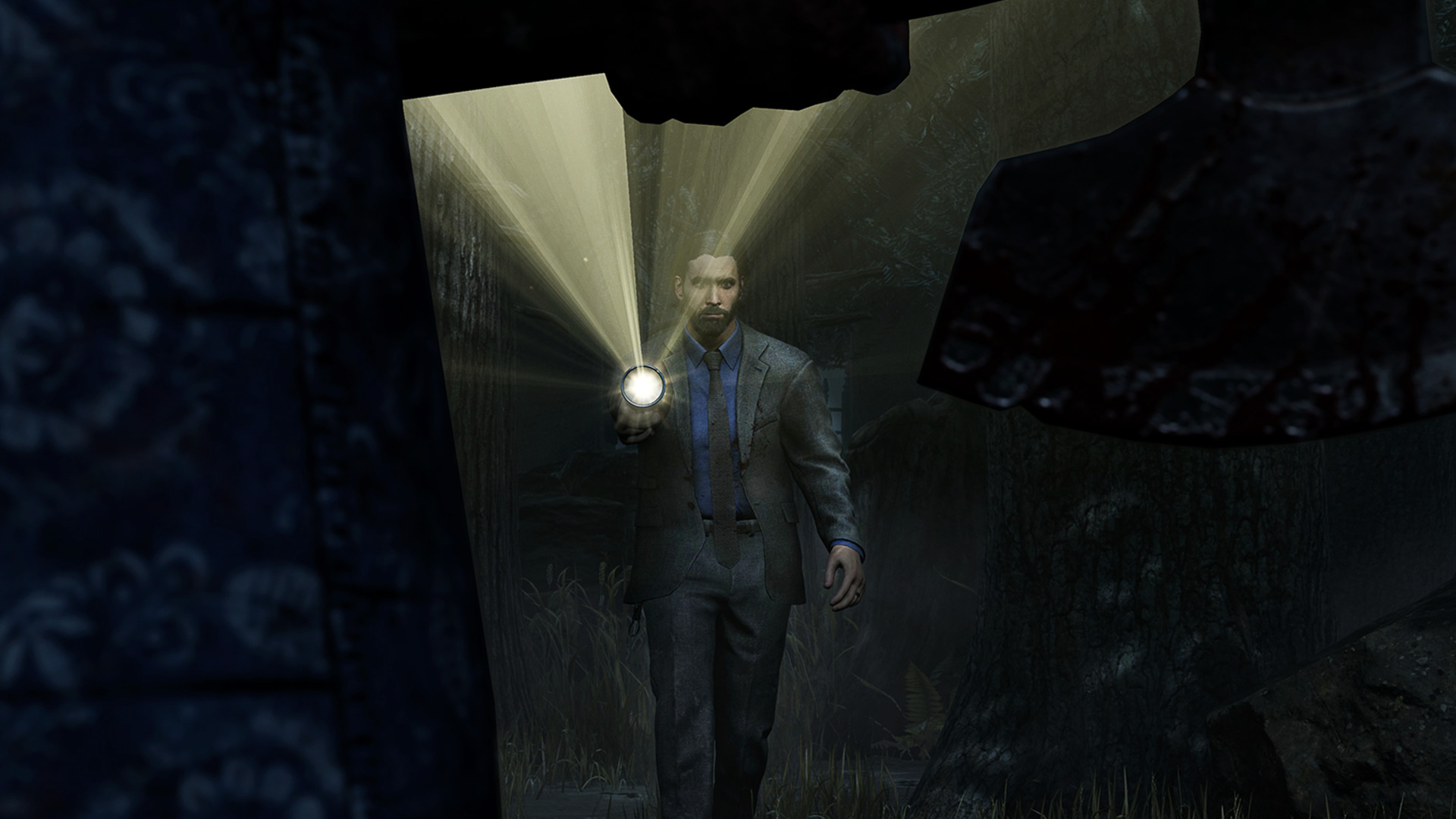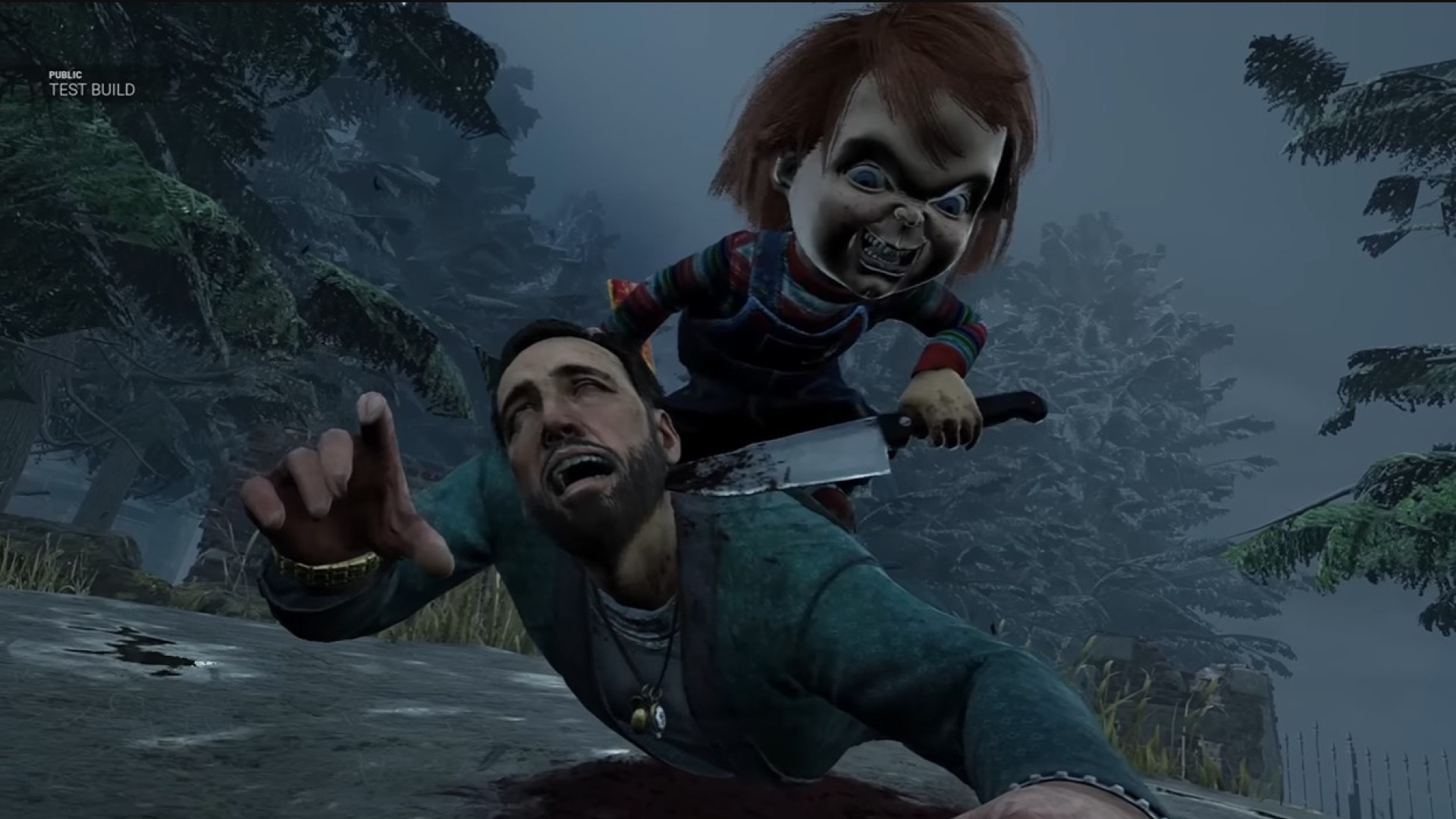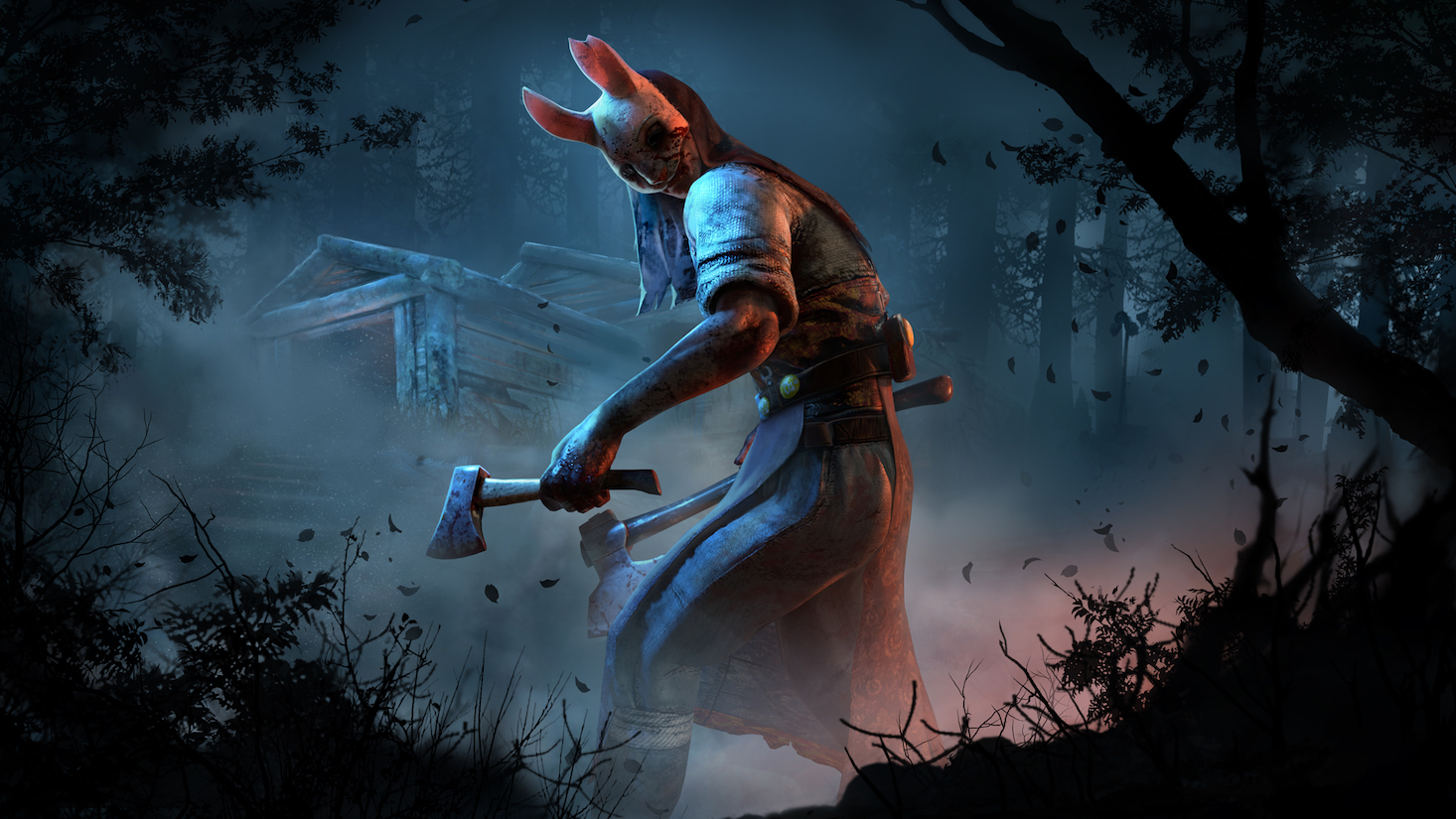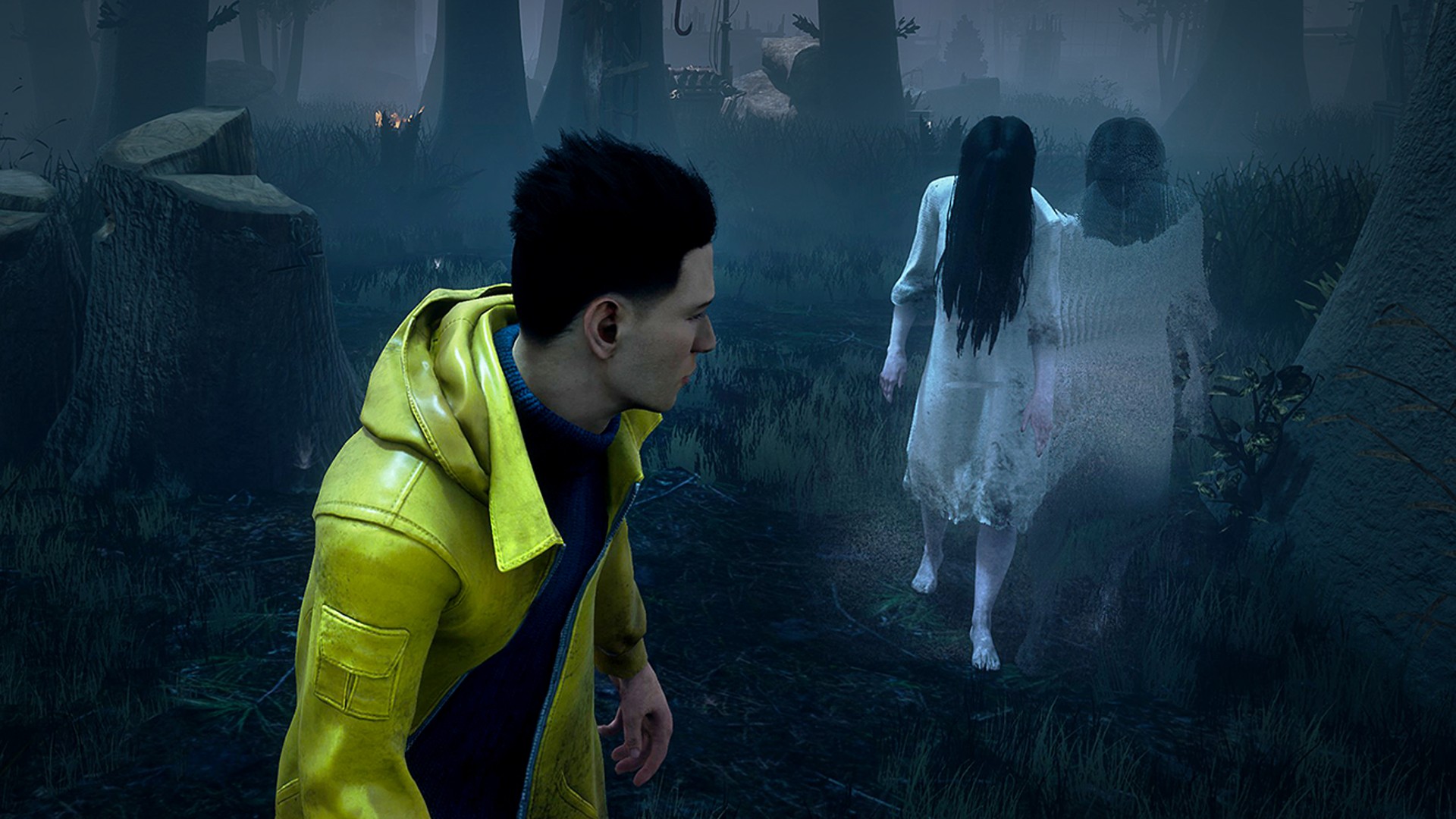
For the first time in the 340-odd hours I've played Dead by Daylight, it's managed to actually scare me. I've been working on this generator for what feels like hours. Somewhere in the darkness, a fellow Survivor screams. How far away are they? Do I have time to run? I can't see more than a foot in front of me, but I know that the shadows all around are hungry.
The Lights Out modifier was a welcome, albeit brief, break from how seriously unserious Dead by Daylight has always felt. Famous horror movie icons like The Shape, The Good Guy, and The Ghost Face might be involved, but unless played in a specific way, they very rarely feel as scary as the movies they hail from – especially when you have powerful Survivor perks equipped and can click a flashlight in their faces. With your perks and items taken from you in Lights Out, though, DBD never felt scarier. Its week-long run from February 7 marked the first limited game modifier to be launched by the developer, and by forcing us to rethink our approach to typical matches, Behaviour landed on its best idea in years to remind us that this was always meant to be a horror game. If Lights Out doesn't make a permanent comeback, I would be more than a little bit upset about it.
Ready or not


Growing tired of online multiplayer games but love DBD's lore? One upcoming horror game is a single player experience set in the Entity's realm.
Dead by Daylight is an asymmetrical horror game that has always felt light on the fear factor. That doesn't mean I don't love it – its cyclicality breeds a welcome familiarity whether you're a Killer or Survivor main, the proverbial cat or mouse in this online battleground. Survivors need to fix generators and escape, hunted all the while by a Killer hell-bent on sacrificing them to an eldritch god. It's safe. It's cozy. It's barely changed in 8 years.
That's because somewhere along the way, it all became a bit of a joke. Nicolas Cage's extremely meta Survivor debut brought the hilarious likes of Scene Partner to the mix, a very meme-able perk that has Survivors scream out comically whenever they see the Killer. Chucky and Tiffany are maybe the most lore-accurate Killers in the game, frequently jeering insults at their prey while chasing them with comically huge kitchen knives. Dead by Daylight doesn't take itself seriously, which is its greatest strength and biggest curse at the same time: it's hard to find it scary when the game knows it isn't.
Again, I think perks are to blame. Perks can help stack the odds in your favor, but they can also become a bit of a crutch. You see this no more prominently than in fan-favorite meta builds that prioritize sprinting, flashlight blinding, and generator rush perks to frustrate and overwhelm Killers. Conversely, Survivor mains often call out Killers for bringing punishing endgame builds, exploiting game mechanics to ensure victories (e.g. the notorious act of "slugging"), or straight-up tunneling players out of matches. Most of this finger-pointing is down to which perks players have equipped, and that makes Lights Out even more compelling to me as the start of a potential series of modifiers.
Rather than changing up the staple gameplay loop, Lights Out reworked its framing. In the mode, both Killers and Survivors start their loadouts disabled, meaning nobody gets any perks or items, and nobody gets any on-screen information via the HUD. Survivors have no idea where generators are, how far along in the repair process they are, or what any of their fellow teammates are up to. As you might've guessed, the entire map is cloaked in darkness, and you can only see a few feet in front of you at any given time. This sounds incredibly Killer-sided at first until you remember that the best Dead by Daylight Killers rely on map mobility and information to put pressure on Survivors. How can The Huntress snipe you down if she can't see where she's aiming her axes? How can The Nurse blink across the map to give chase when she can't see your scratch marks? The weaknesses of Killers and Survivors alike are exposed in Lights Out, and it forces players to rely on skill instead of perks power.

I was truly alone as a solo queue player; it's every man for himself in the Entity's realm.
It totally changed how I play Dead by Daylight. An example is how I would usually equip Kindred, a perk that reveals Survivors' auras to each other when teammates are hooked. This ordinarily helps ensure that we always have one person working on generators instead of running to unhook teammates all at once. The assuredness of knowing where people are in a given match takes a lot of the fear out of it, especially when you're playing solo with strangers and therefore have no voice comms. In Light Out though, with no idea what my squadmates were up to, the decision of whether or not to go for a save felt far more weighty. I was truly alone as a solo queue player; it's every man for himself in the Entity's realm, I realized, and I'd been sorely humbled by that fact thanks to Lights Out.
The developer has toyed with unique game conditions before. Recent seasonal challenges have forced Survivors to randomize their perks, while The Dredge's innate power inflicts near total darkness as a means to isolate their prey, and now that Behaviour has added more HUD info over the years, perks that rob you of that information can feel especially disorienting even in a regular match. All these elements were magnified in Lights Out; it was a great equalizer, it made Dead by Daylight a horror game again, and it finally set it apart from newer kids on the block like Evil Dead: The Game and The Texas Chain Saw Massacre.
It was an all too brief glimpse of what DBD would be like as an actual horror game. Not only did Lights Out provide a worthy challenge, it also shows that Behaviour knows how to make the game actually scary. The answer? Using its existing tools to break us from tradition. This could be an exciting new chapter in Dead by Daylight's ongoing journey, should the studio decide to introduce more modifiers, and this small taste of Lights Out has me more excited than ever to get back into Dead by Daylight properly.
Some of the iconic DBD Killers and Survivors are cameos from the best horror games, from Resident Evil to Silent Hill.







